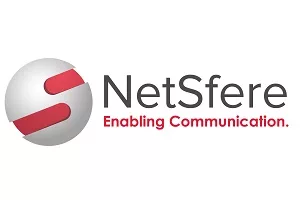No one would dispute that communication is vital, if not the most critical factor, to the success of any organisation. But in the now not-so-new remote and hybrid work environment, it is harder than ever before to maintain the same level of communication, collaboration, speed and therefore productivity that was once available in the office environment, says Anurag Lal, president and CEO, NetSfere.
As enterprises look to technology to navigate the challenges of remote and hybrid working, providing tools that help employees work in a safe and secure manner is now, more than ever, an enabler of business success. Equipping employees with full-featured mobile messaging and collaboration tools with built-in security, control, and compliance is essential for helping them safely succeed in the digital world of work.
Today, the hybrid work model is a mainstay with 83% of workers preferring it to full-time office life. Enterprises are also taking note of their employees’ demands with 78% of UK companies allowing hybrid work. But, with the increased adoption of these models, there are consequences. The enterprise attack surface is widening, opening the door to growing cyber threats in a landscape rife with evermore opportunistic cybercriminals. Ensuring secure business communication and collaboration is critical.
To remain productive and connected in the digital workplace, some employees are turning to insecure consumer-grade communication platforms, such as WhatsApp, and collaboration apps such as Slack or Microsoft Teams. This practice is jeopardising the safety and security of both employees and enterprises.
It is up to organisations to provide secure enterprise-grade communication and collaboration technology that protects employees while optimising workflows, increasing productivity, and fostering team connections.
It is a minefield and if you are struggling to determine which technology is best suited to your requirements, here are three must-haves when selecting a mobile messaging and collaboration platform:
Maximum security
The highest level of enterprise-grade security is needed for all organisational systems, and mobile messaging and collaboration technology is no different. Last year, 40% of organisations reported a cyber intrusion directed at their remote work environments; it is safe to assume attacks against the hybrid environment will continue to rise and as such securing this critical element of business must be a c-suite priority.
Secure by default mobile messaging and collaboration platforms with gold standard end-to-end encryption (E2EE) should be a part of enterprise tech ecosystems to ensure that communication across channels is locked down in transit and at rest, keeping all data private and secure.
Secure by design collaboration technology provides employees with a convenient and frictionless way to share ideas, files, and data without the risk of data leakage or exposure.
Ironclad compliance
A survey found that on average hybrid workers spend 2.5 hours per day using collaboration tools. As employees spend more time using technology to communicate and collaborate in a distributed environment, compliance risk grows. As a result, data sovereignty and industry compliance are two factors increasingly influencing cloud service provider selection decisions. Almost half the respondents (48%) to IDC’s Cloud Pulse 2Q22 survey indicated that data sovereignty and industry compliance have factored highly in discussions about their future IT architectures.
Remaining compliant in a shifting regulatory landscape requires mobile messaging and collaboration platforms with built-in security and compliance features and a strict no data collection approach. Strong administrative controls that allow IT teams to accurately monitor compliance at all times combined with E2EE ensure enterprises are completely compliant with evolving regulatory requirements.
Mobile messaging platforms with the administrative, technical, and physical security infrastructure designed to guarantee compliance eliminates the risk of noncompliance, protecting employees and data across channels and devices.
Powerful control
Powerful administrative control mechanisms in centrally managed cloud-based messaging and collaboration platforms work in tandem with security and compliance features to reduce the risk of data breaches and compliance violations. Administrative controls that enable centralised account management, file sharing and policy compliance, remote wipe, real-time reporting and other capabilities, give IT departments the control they need to securely manage the distribution of information across the enterprise.
That creates the most secure environment for employees to connect and collaborate.

Securing business communication and securely supporting employees in the digital workplace requires a mobile messaging and collaboration platform with maximum security, ironclad compliance, and powerful control.
We have recently heard some persistent rumblings challenging hybrid working and promoting a return to more traditional office-based working arrangements. Wall Street heavyweights such as JPMorgan Chase are already pushing for a return to full-time office schedules. However, their insistence on archaic work models is out of sync with reality. The latest MLIV Pulse survey showed that nearly half (48.5%) of financial services employees vocally expressed their readiness to jump ship if their roles required a full-time office presence, so I doubt this will happen anytime soon. Therefore, the imperative to find a fast and secure means of collaborating will be a top agenda item for most enterprise organisations as they adapt to the not-so-new ‘normal’.
The author is Anurag Lal, president and CEO, NetSfere.
Comment on this article below or via Twitter: @VanillaPlus OR @jcvplus






